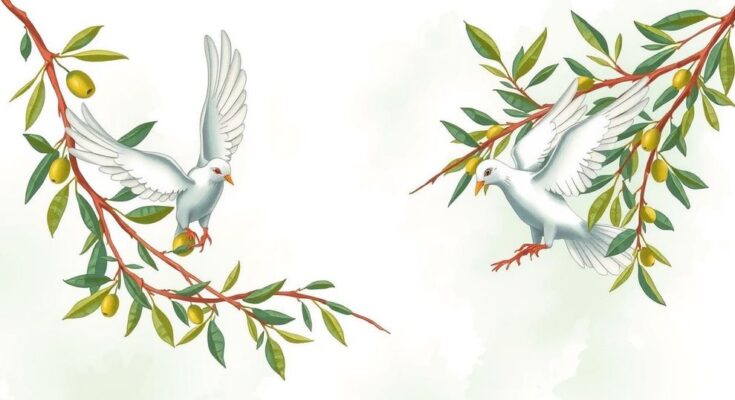The crisis in South Sudan escalates as Vice President Riek Machar is accused of conspiracy and arrested, prompting calls for his release by the opposition SPLM-IO. Despite fears of renewed conflict, officials maintain the 2018 peace deal remains intact. Peace Minister Stephen Par Kuol urges adherence to ceasfire agreements and calls for dialogue to secure stability in the nation amidst rising tensions.
South Sudan is amid a critical crisis, as government officials accused Vice President Riek Machar of conspiracy, leading to his arrest by President Salva Kiir’s orders. This arrest has raised tensions between the government and the opposition Sudan People’s Liberation Movement in Opposition (SPLM-IO), which has called for Machar’s immediate release. Despite the escalating situation, both sides express a desire to maintain the fragile 2018 peace deal that currently governs their relations.
On the other hand, Michael Makuei, the Information Minister, assured that there is no imminent threat of returning to war. He stated, “The peace agreement is still in place and will be implemented (…) The peace agreement has not collapsed and will not collapse under any circumstances.” This comment marks an effort to maintain stability amid ongoing tensions in the nation.
In a bid to foster peace, South Sudan’s peace minister and SPLM-IO figure, Stephen Par Kuol, urged adherence to the permanent ceasefire and the 2017 Cessation of Hostilities Agreement for achieving sustainable peace. He affirmed, “We reaffirm our firm commitment to the peace process through the Revitalised Peace Agreement,” encouraging the public to remain calm amidst the crisis.
The SPLM-IO has toned down its language following Machar’s detention but continues to advocate for his release and that of other detained officials, highlighting that their arrest signifies a significant threat to peace. Makuei described this situation as an essential moment for dialogue between all parties involved to alleviate these tensions as they work through the next steps.
Since gaining independence from Sudan in 2011, South Sudan has faced continuous challenges, including a five-year civil war from 2013 to 2018. This conflict resulted in approximately 400,000 fatalities and was concluded by a peace agreement aimed at power-sharing, which has yet to be effectively carried out. The crisis has stirred international calls for support from the African Union and the United Nations to facilitate dialogue for resolution efforts.
South Sudan currently faces a pivotal moment as government accusations against Vice President Riek Machar and his subsequent arrest have escalated tensions within the country. Despite these challenges, officials are committed to maintaining the fragile peace established in 2018. Calls for dialogue and adherence to previous agreements signal a collective hope for sustainable peace and stability moving forward.
Original Source: efe.com




